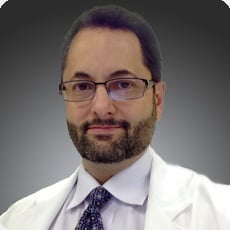New Study Says Boys Less Likely to be offered HPV vaccination
Vaccine recommended for preteen boys and girls
 A new study shows that health providers are less likely to offer the Human papillomavirus (HPV) vaccine to boys, placing them at risk of cancer when they get older.
A new study shows that health providers are less likely to offer the Human papillomavirus (HPV) vaccine to boys, placing them at risk of cancer when they get older.
The research was presented at the Annual Meeting of the Society of Gynecologic Oncology in New Orleans on March 24 and was taken from NIS-Teen, a national survey which collects data from parents to adolescents aged 13 to 17 years old to track vaccination rates in the United States.
ABC News reports the most recent statistics from 2016 show about 65 percent of girls had started the HPV course, only 56 percent of boys had.
The HPV vaccine is recommended for preteen boys and girls at age 11 or 12 so they are protected before ever being exposed to the virus. The CDC recommends that 11 to 12 year olds receive two doses of HPV vaccine at least six months apart.
HPV infection can cause cervical, vaginal and vulvar cancers in women and penile cancer in men. HPV can also cause anal cancer, throat cancer and genital warts in both men and women. Boys are especially vulnerable to throat cancer.
By the year 2020, experts believe head and neck cancer will surpass cervical cancer as the most common cancer caused by HPV.
 Jason Terk, M.D., a pediatrician at Cook Children’s, says vaccination rates for HPV are comparatively lower than other adolescent vaccines primarily because parents don’t perceive that their teens' physicians strongly recommend it. And, physicians may not provide a definitive endorsement of the HPV vaccine because they incorrectly believe they will meet resistance from the parents of their teen patients.
Jason Terk, M.D., a pediatrician at Cook Children’s, says vaccination rates for HPV are comparatively lower than other adolescent vaccines primarily because parents don’t perceive that their teens' physicians strongly recommend it. And, physicians may not provide a definitive endorsement of the HPV vaccine because they incorrectly believe they will meet resistance from the parents of their teen patients.
Dr. Terk has taken steps to improve the HPV rates among Cook Children’s 27 primary care practices by providing educational sessions showing how pediatricians can improve their vaccination rates
Dr. Terk has received national attention for calling HPV vaccination rates an “epic fail.”
Across the country, the number of children who receive the HPV vaccine is very low compared to other vaccines they are scheduled to receive at the same time. This is despite the fact that meningitis and pertussis are much less common than HPV.
HPV is so common, in fact, that the journal JAMA Oncology reported in January that nearly half of American men may have an HPV infection known to cause cancer. This is based on a study of 1,868 men, ages 18 to 59. Among the group, only 10.7 percent were vaccinated against HPV while 45 percent reported having genital HPV.
Girls had a head start on HPV vaccinations. The vaccine was approved by the FDA for use in girls in 2006 and for boys three years later.
The study shows that work still needs to be done to raise awareness about the dangers of HPV and how to prevent an infection with the highly effective HPV vaccine. Dr. Terk said that's one of the reasons why boys are lagging behind girls in HPV vaccine rates. He also said there's a public consciousness about HPV causing cervical cancer, but many people aren't generally aware or understand that HPV vaccination is just as important for males. He said that many haven't connected the increase in head and neck cancer is caused largely due to HPV infection.
“One of the major problems with HPV is that it may be 20 or 30 years before a person develops cancer due to an infection that happens in the teen years,” Dr. Terk said. “Waiting until you think HPV is a risk is too late. We have to make every effort to provide our patients the HPV vaccine so we can put an end to the thousands of teens who move through Cook Children’s without ever gaining this indispensable protection.”
That’s what Dr. Terk wants parents to know: HPV infection can be prevented.
The vaccine is most effective when given in early adolescence.
The FDA has approved vaccines that prevent the HPV strains that are associated with cancers of the cervix and head and neck.
"This is a relevant issue for all parents,” Dr. Terk said. “We have a vaccine that can prevent cancer. Parents should start the vaccination process as soon as their pediatrician recommends."
Get to know Jason Terk, M.D.
 Dr. Terk is a Cook Children's pediatrician at Keller Parkway. Dr. Terk earned his medical degree from University of Texas Medical Branch in Galveston, Texas. He completed his residency in pediatrics at Mayo Graduate School of Medicine (Mayo Clinic) in Rochester, Minnesota. His interests include public policy advocacy for children's health issues, focusing primarily on vaccines. Dr. Terk is board-certified in pediatrics. New and exisiting Cook Children's Keller pediatrician office patients can make an appointment by calling 817-968-1200 or through the button below to access Cook Children's Patient Portal.
Dr. Terk is a Cook Children's pediatrician at Keller Parkway. Dr. Terk earned his medical degree from University of Texas Medical Branch in Galveston, Texas. He completed his residency in pediatrics at Mayo Graduate School of Medicine (Mayo Clinic) in Rochester, Minnesota. His interests include public policy advocacy for children's health issues, focusing primarily on vaccines. Dr. Terk is board-certified in pediatrics. New and exisiting Cook Children's Keller pediatrician office patients can make an appointment by calling 817-968-1200 or through the button below to access Cook Children's Patient Portal.
